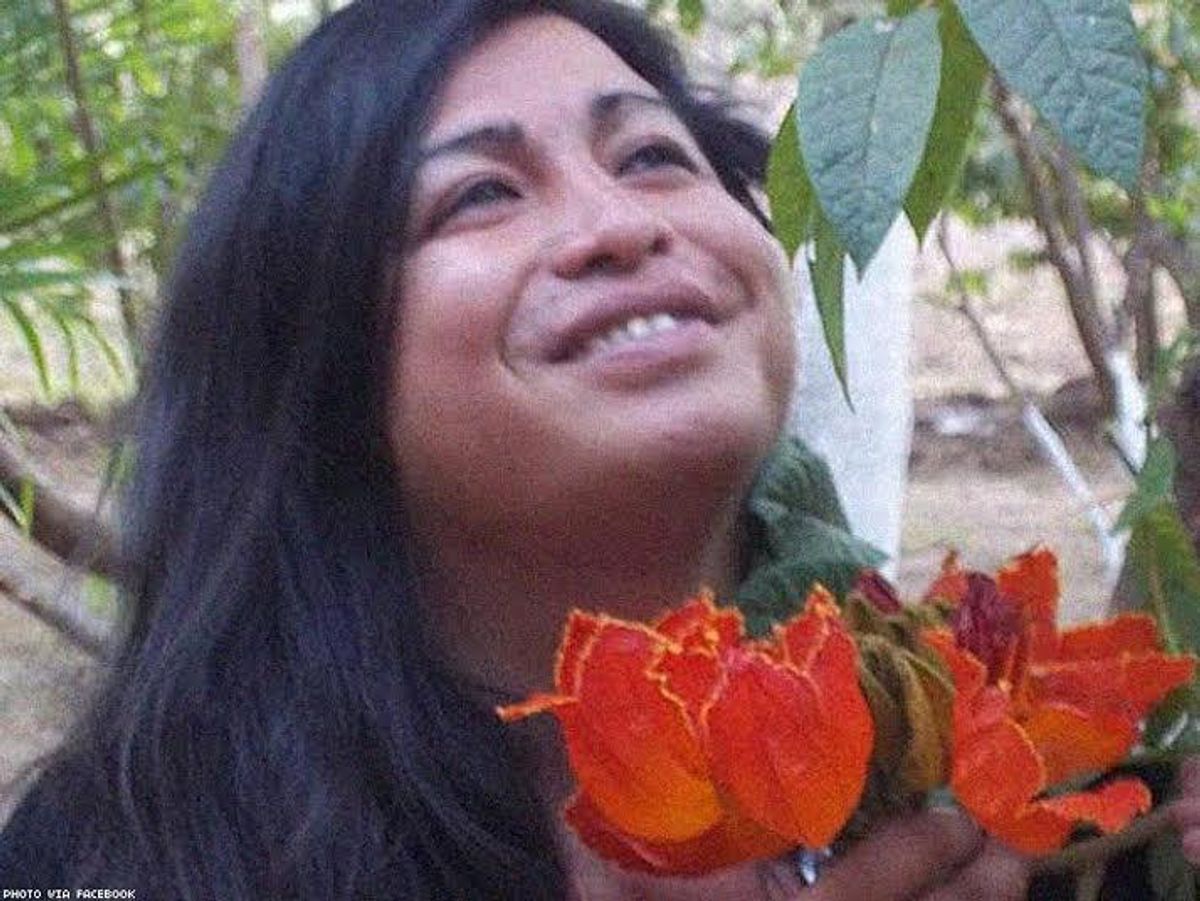Celebrated Argentinian LGBT rights activist Amancay Diana Sacayan, a 40-year-old trans woman, was found murdered on Tuesday in her apartment in Buenos Aires, according to the Buenos Aires Herald.
When Sacayan did not attend the 30th National Women's Meeting in Mar del Plata last weekend and failed to respond to phone calls, her friends became alarmed and alerted her building's owner, who found her deceased inside her apartment with the door ajar and the premises in disarray.
Local law enforcement believes that Sacayan was stabbed multiple times to death by one or more assailants that she may have known and let into her apartment. Her body showed signs that she fought to defend herself. Buenos Aires prosecutor Matias Di Lello is questioning witnesses, some of whom claim to have seen a single man entering Sacayan's apartment over the weekend, and others who say that saw a couple visiting Sacayan.
Sacayan co-lead the International Lesbian, Gay, Bisexual, Transgender, and Intersex Association and directed the Argentina's Anti-Discrimination Liberation Movement group. So renowned was her LGBT advocacy that the President of Argentina, Cristina Fernandez -- an outspoken leader for marriage equality in the Latin American country -- personally presented Sacayan with a corrected national identity card in 2012 affirming Sacayan's legal name and her identity as a woman.
"I ask the national security services and the police to solve this horrible crime," said Fernandez upon learning of Sacayan's death, according to Reuters.
Sacayan's murder becomes the third killing of a trans woman in Argentina less than two months, according to U.S. LGBT outlet The Washington Blade. A Santa Cruz trans woman named Coty Olmos was found stabbed to death earlier this month, and while police have verified that Olmos was also stabbed multiple times like Sacayan, further details of Olmos' murder are pending.
The body of another transgender activist, Marcela Estefania Chocobar, was found in a landfill in the city of Rio Gallegos in the district of Santa Fe on September 6. Chocobar's body was so severely burned and dismembered that her identity had to be confirmed through DNA evidence, verified by her grieving sister.
Latin America has a long, tragic history of transphobic violence, directed especially toward transgender women. Last year, the majority of women memorialized during the annual Transgender Day of Rememberance were killed in nations throughout South and Central America.
"1,356 killings of trans and gender-diverse people have been reported in Central and South America, which account for 78% of the globally reported murders of trans and gender-diverse people since January 2008," notes a report from the European Trans Murder Monitoring project.
Sacayan's killing drives home the unprecedented spread of the global epidemic of violence against transgender and gender-nonconforming people. Murders in 23 countries in Central and South America mark the highest number of reported cases throughout the world. Yet, TMM also notes that most murders of trans individuals remain woefully underreported.
Advocates also draw attention to the heinous, excessively violent nature of the crimes comitted against gender-variant people, which often include xtreme degrees of brutality, torture, and mutilation. This has led a coalition of NGOs, including Sacayan's group, the ILGA, to label such crimes "trans genocide," and to call for a worldwide campaign to stop the violence in conjunction with The International Day Against Homophobia, Transphobia and Biphobia, according to TMM.
Sacayan's murder arises despite Argentina's well-documented progressive turn towards federal acceptance of LGBT people and Latin America's rising push toward greater LGBT rights.
In 2012, Argentina's legislature unanimously passed a historic transgender rights law. Earlier this year, Argentina made history with the issuance of a LGBT-friendly three-parent birth certificate, and the country granted its LGBT citizens marriage equality in 2010. This progress may be a sign that LGBT lawmakers are far more prominent in Latin America than elsewhere. Yet, advocates fear that with rising visibility comes increased violence.
"A dark cloud has set over Argentina's trans community," said Mariela Belski, Executive Director of Amnesty International Argentina in a statement. "Unless this latest wave of murders is effectively investigated and those responsible taken to justice, a message will be sent that attacking trans women is actually OK."

















































































